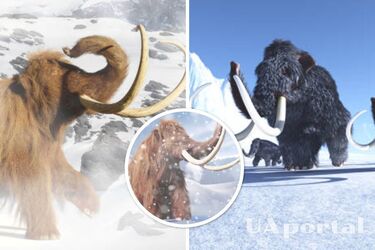Scientists in the UK want to revive a mammoth by 2028: they will use genetic engineering

The British biotechnology and genetic engineering company Colossal Biosciences has announced its intention to reproduce woolly mammoths by 2028. According to the company's plans, a cub of the species that became extinct 4,000 years ago will be born in five years.
According to the Daily Mail, the experts intend to restore the mammoth genome from the found samples, and fill in the gaps with the DNA of modern Asian elephants. Their genomes coincide by 99.6%. It is planned that the embryos will be implanted into elephant surrogate mothers.
Read also: A completely new species of lizard with hieroglyphs on its back was found in Iran (photo)
The company also needs to find partners among the states that would allow the mammoths to be released on their territories. The population will live in the tundra. Colossal Biosciences claims that the feeding behavior of woolly mammoths will have a positive impact on these lands. Allegedly, it will have a good effect on the amount of carbon in the atmosphere and help preserve permafrost.
But, as the Daily Mail clarified, there are studies that show that the "revitalization" of mammoths is more likely to cause losses in the form of lost scientific resources.
"I'm not against cloning. But I am against using it to solve the problem of environmental protection and even climate change. Unfortunately, the effect can be negative, as funding is directed to risky and ineffective methods," said Joseph Bennett, associate professor of biology, ecology and interdisciplinary sciences at Carleton University in Ottawa.
In response, Colossal Biosciences CEO Ben Lam said that his company attracts private investors and does not apply for funding through research grants.
Colossal Biosciences also wants to "bring back" the Mauritian dodo (dodo bird) and the marsupial (Tasmanian) wolf.
The specialists who participated in the study note that their project can be useful in the conservation of endangered species. It is likely that it is possible to obtain the necessary animal through selection.
Earlier it became known that scientists from China had implanted stem cells into a monkey embryo. The baby was carried by a surrogate mother. The newborn monkey suffered from hypothermia and respiratory failure, which is why veterinarians put it to sleep ten days after birth.
If you want to get the latest news about the war and events in Ukraine, subscribe to our Telegram channel!
